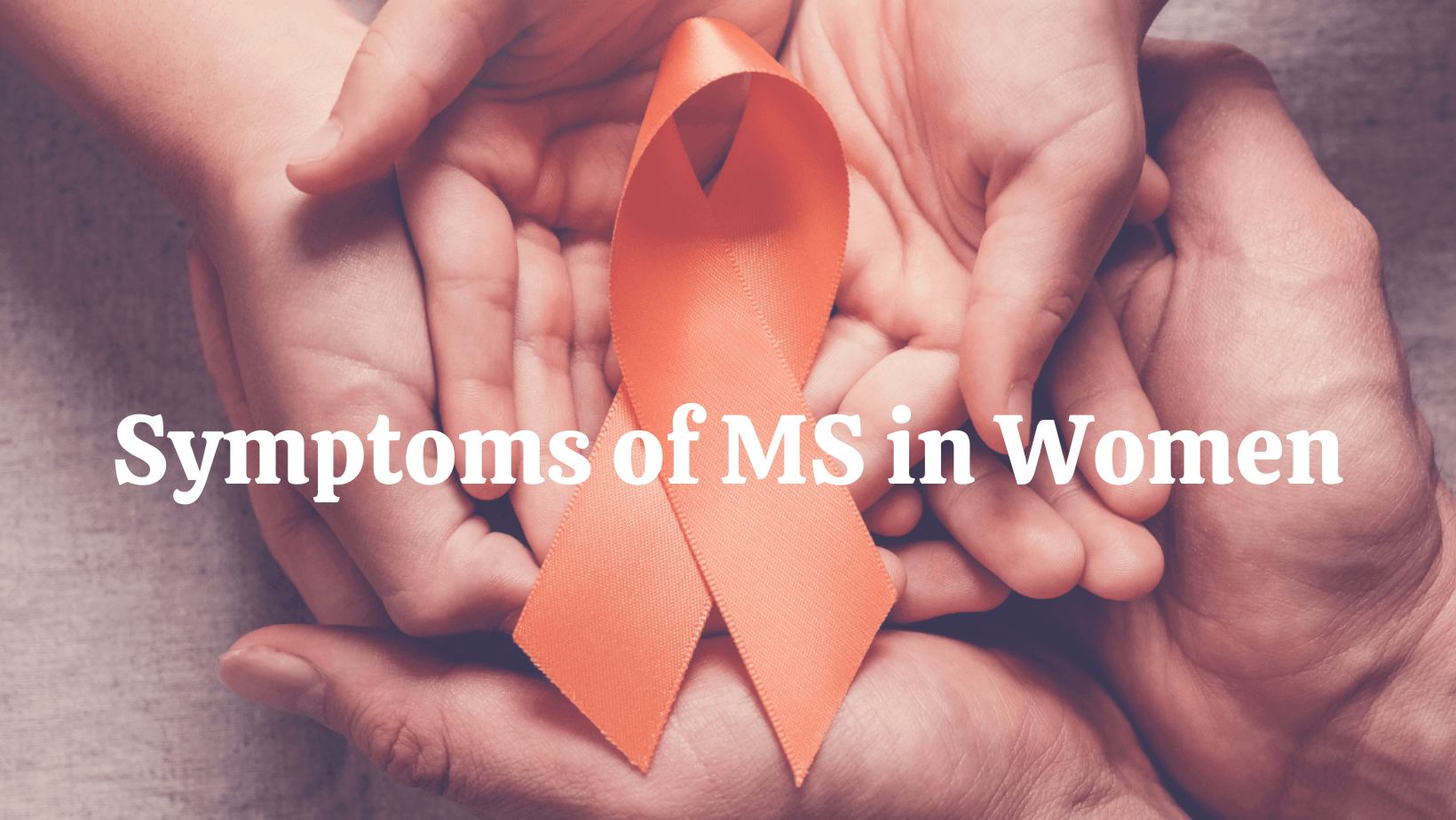Top 10 Most Important Symptoms of MS in Women

Multiple sclerosis a.k.a MS is a chronic condition that can impact the optic nerves in your eyes, your brain, and your spinal cord. Though it can also affect older adults and young children, it is most commonly diagnosed in adults between 20 and 40 years. It can cause your immune system to attack your nerve covering called myelin which can bring many other complications. That is why it is important to be aware of the symptoms and get treated. In this write-up, we will discuss the top 10 most important Symptoms of MS in Women.
Symptoms of MS in Women
1. Fatigue
Excessive fatigue affects about 80% of women with MS. It is typically described as an overwhelming sense of tiredness, lack of energy or feeling of exhaustion that is not alleviated by rest. The fatigue may worsen as the day progresses and can significantly disrupt daily activities. It appears to be related to inflammation, nerve fiber damage and possible problems with regulating rest and activity cycles in the brain.
2. Numbness and Tingling
Around 50% of MS patients experience abnormal sensory symptoms like numbness, pins-and-needles sensations or burning pain. These odd sensations most often occur in the limbs, torso or face. Numbness or reduced sensations are caused by myelin damage and nerve fiber loss in sensory pathways. Tingling results from misfired signals in damaged nerves.
3. Mobility Impairment
Mobility impairment is one of the most common Symptoms of MS in Women. Difficulty walking, balance problems, leg weakness and coordination issues affect over 90% of MS patients at some point. Damage to nerve fibers reduces communication between the brain and muscles leading to mobility impairment. Walking difficulties like foot drop or an unsteady gait are commonly seen.
4. Optic Neuritis
Inflammation of the optic nerve, called optic neuritis, leads to eye pain and vision disturbances in around 50% of women with MS. Symptoms may include blurry vision, darkened vision with less colour perception, blind spots or complete vision loss. The vision problems and eye pain may be mild or severe. Vision typically returns within several weeks, but some permanent vision loss may occur.
5. Cognitive Dysfunction
Next in our list of Symptoms of MS in Women is cognitive dysfunction. MS brain lesions can impair cognitive functions like memory, attention, information processing, executive functions and spatial reasoning. Over 50% of women report issues with learning, multitasking, planning and problem-solving. Cognitive lapses, sometimes called “brain fog”, are often one of the most frustrating MS symptoms for patients.
6. Bladder Incontinence
Up to 80% of MS patients struggle with bladder control issues like urinary urgency, frequency and incontinence. This results from MS lesions disrupting nerve signals between the brain and bladder. Some women may experience mixed incontinence with symptoms of both urge and stress urinary incontinence.
7. Chronic Neuropathic Pain
Sharp, burning or tingling neuropathic pain in parts of the body is common in MS, affecting over half of patients. Triggers include MS nerve damage and lesions in pain regulatory pathways. Many women experience painful extremity spasms, back pain, headache pain or trigeminal neuralgia facial pain. The pain may be constant or intermittent.
8. Depression
Around 50% of MS patients will experience clinical depression during their lifetime due to elevated inflammation, brain lesions, and chemical changes. Depression symptoms like sadness, loss of interest, low energy, sleep disruption and trouble concentrating make coping with MS even more difficult. Suicide risk is higher in MS patients with depression. That is why if you are wondering about the Symptoms of MS in Women, you should not ignore depression.
9. Sexual Dysfunction
Many women with MS report problems with sexual function including reduced libido, lack of arousal and difficulty reaching orgasm. Contributing factors include nerve damage, fatigue, bladder issues, spasticity, medication side effects and psychological components.
10. Spasticity
About 80% of MS patients eventually develop stiffness, tightness and involuntary muscle spasms known as spasticity. It commonly affects the legs, arms, and trunk. Spasticity results from lesions in the brain and spinal cord that overstimulate muscles. It can be painful, cause abnormal posturing and impair mobility. Stretching, medications and therapy help manage it.
Frequently asked questions
Q: Who can get MS?
A: MS occurs more frequently in women than men. Most people between the ages of 20 and 50 are likely to experience the Symptoms of MS in Women.
Q: What causes MS?
A: The exact cause of MS is unknown, but it’s believed to be an autoimmune disease in which the immune system attacks the myelin sheath around nerves.
Q: What are the main symptoms of MS?
A: Common MS symptoms include fatigue, numbness, mobility and balance issues, bladder problems, vision changes, pain, cognitive changes, depression, sexual dysfunction, and more.
Q: How is MS diagnosed?
A: No single test can diagnose MS. Doctors use clinical examination, medical history, MRI scans, spinal fluid tests and electrical studies to rule out other causes and confirm MS.
Q: Can MS be cured?
A: Currently there is no cure for MS. However, treatment focused on managing symptoms, preventing relapses, and slowing progression can help patients maintain function.
Q: What are the treatment options for MS?
A: Disease-modifying therapies, steroids to treat relapses, medications to manage specific symptoms, physical therapy, occupational therapy, speech therapy, and complementary approaches can help.
Q: Does MS affect pregnancy?
A: MS symptoms often improve during pregnancy, especially in the second and third trimesters. Relapses are more common in the first 3 months after delivery.
Q: Does MS shorten life expectancy?
A: MS is rarely fatal, and most patients have a normal or near-normal life expectancy. Severe MS can shorten life expectancy by about 5 to 10 years.
Overview
Knowing the Symptoms of MS in Women is beneficial because early diagnosis and treatment can help manage symptoms more effectively and potentially slow the progression of the disease. Being aware of common symptoms like fatigue, numbness, walking problems, vision changes, and bladder issues allows for quicker medical evaluation and access to medications, therapy, and lifestyle changes that can reduce relapses and disability.






